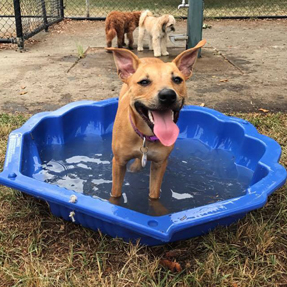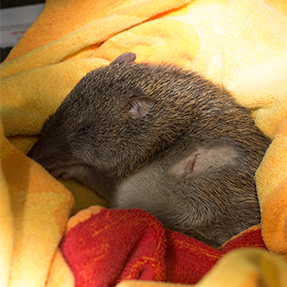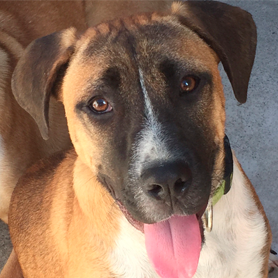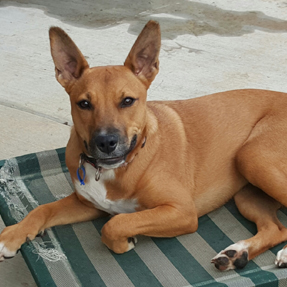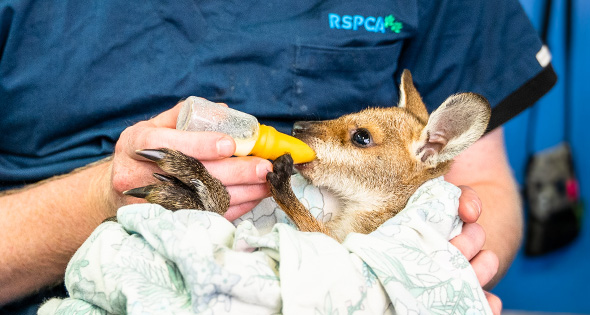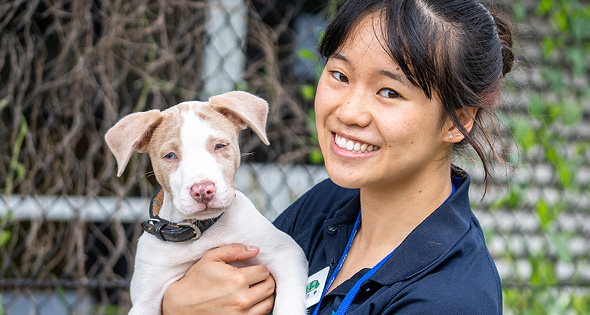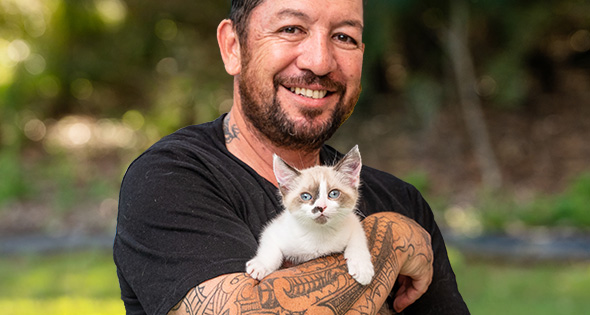Our professional and dedicated veterinary services team continue to be a pivotal part of the RSPCA Qld family, having assessed 45,043 incoming animals last financial year. They performed desex procedures, not to mention the more challenging medical and surgical cases presented to them from Brisbane and regional locations.
Without the hard work of our veterinary services team, regional areas would not receive medical or spay neuter support, and animals like Tyson here might not have had a future.
Tyson is a great example of the endless commitment of the Veterinary Services Team and the organisation as a whole. Without the ambulances, nurses, vets, volunteers, and foster parents Tyson’s story may have had a very different ending.
Tyson’s Story
Tyson the adorable six week old Staffordshire puppy was surrendered into the Animal Emergency Clinic, as his owners were unable to afford his vet fees. He arrived by animal ambulance late at night feeling and looking flat, depressed, and lethargic.
Poor little Tyson had been chronically vomiting over two weeks, which severely worsened in the last two days. Evidently, he was unable to keep food and water down. Upon first examination his lungs sounded crackly as if pneumonia was developing, possibly due to all the vomit being regurgitated. Tyson immediately began treatment on antibiotics and IV fluids to support and stabilise his condition before further investigations into his unfortunate illness began.
The following day Tyson went in for x-rays which showed a persistent right aortic arch consistent with a condition called megaoesophagus. This is when a congenital abnormality of the heart’s blood vessels result in the oesophagus being compressed at the level of the base of the heart. It prevents solid food from being able to pass properly past the compression, as well as the dilatation of the oesophagus in front of the compressed area. As food isn’t moved properly through the oesophagus, regurgitation occurs.
Tyson needed to undergo surgery by a specialist, who would remove the arch and therefore the restriction, allowing him to feed normally. However, the dilation of the oesophagus may never return completely too normal and regurgitation may continue to be a problem. It can be managed by a special method which includes feeding small portions regularly, with Tyson sitting upright to help the food pass into the stomach. Naturally, it’s a little uncomfortable for an excitable puppy to sit in a high chair for twenty minutes after his food, but he fared well. Tyson continued to eat this way so he didn’t feel so hungry, before he could have a specialist perform the complex surgery.
Dr Tania Banks donated her time to perform the intricate operation with the Vet services team providing medical support, facilities, and endless cuddles for Tyson. Thankfully Tyson responded well to the surgery and was placed into foster care after his recovery period. Although he still requires his special feeding method through a bigger high chair, due to growing out of his old one, x-rays showed fine improvement in his megaoesophagus.

